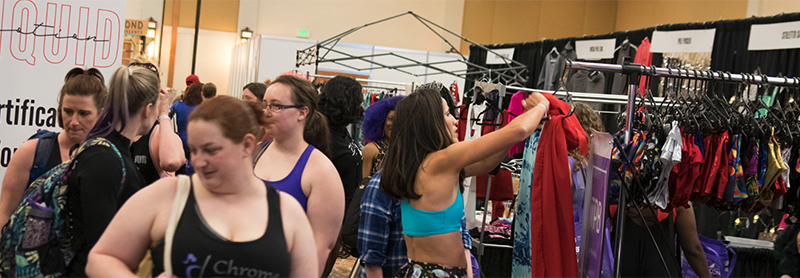A train-cation is a trip (usually away from home) where you focus for a specific…

How to Set Expectations for Work Hours for Employees and Contractors
Outside of teaching specific, scheduled classes, there are no common working hours for pole industry professionals. Many pole-fessionals may also maintain their pole business pursuits in addition to a regular “day job.” This can make it hard as a business owner or as a consumer to know when and how they can and should contact someone about business or to receive a status update on work in the pole industry.
The corporate world, we work during the day
In the corporate world, most white-collar professionals work Monday-Friday and have an expectation of working sometime between 8 or 9am until 5 or as late as 7pm depending on the industry. Often, when first starting a new job, expectations of working hours are clearly set in an employee contract. (Note, that one measure that makes an employee an employee from a legal perspective is if you specify their working hours.) While you certainly can define working hours with a contractor, you’d specify that information in a consulting or contracting agreement.
In the pole world, we work at night
Compared to the corporate world, most pole related work such as teaching classes, performing and club-related pursuits, happens in the complete opposite hours—in the evening and on the weekends—specifically to cater to people who work during the “regular” workday. As a businessperson working in the pole industry with contractors or staff who may have day jobs AND evening pole-related commitments, when should you expect to get a hold of someone to answer a question, do a new task or even respond to a critical message?
Communication is the best way to set expectations
The best way to set working day/hours expectations is to talk to your staff or contractors and initiate a dialog. Ask them when they are available to do work and respond to requests and then document that information so that everyone can remember what they agreed to. Consider making this a formal document like a contract and review it regularly, potentially during an annual review, to confirm the information is still accurate and applicable.
Also ask them the best way to communicate with them. In the modern era of text messages, emails, DMs and more it is easy to miss critical or time-sensitive communications. For communicating to several people such as group of instructors or performers, consider using an app like WhatsApp or GroupMe or even a more robust tool like Slack rather than using text messages which some people may pay for or Facebook Messenger or Group as some corporate workplaces may restrict access to that site. Communicating via email can be better for long form communication, such as a policy update, whereas using an app could be an efficient way to get information or a request out fast.
Mutually establish clear deadlines and timelines for response. Timeliness is a characteristic of a pole-fessional.
If you already have established timelines, expectations and methods of communicating, make sure any new employees or contractors involved with your business understand those expectations when they are first hired.
Setting boundaries is professional
If a conversation about working days or times isn’t set early in a working relationship, problems may arise at the tensest and most inconvenient times. Because we are generally friendly community, it can be hard to set limits on your time and professional boundaries on your ability to support. Being clear about what you can do and when, while potentially hard at first, is ultimately the better way to manage any business relationship—even one you have with a friend. Managing the complex relationship between being a friend with someone AND paying them for providing your business with a service is hard but not impossible to navigate and requires honest and regular communication.
The takeaway
The worst thing you can do in your business is to assume. You might love working late on Friday nights at your computer and expect lightning-fast responses to your emails, but your staff may consider that family time, or time to work with another customer. Set clear expectations early and make working together more efficient.



